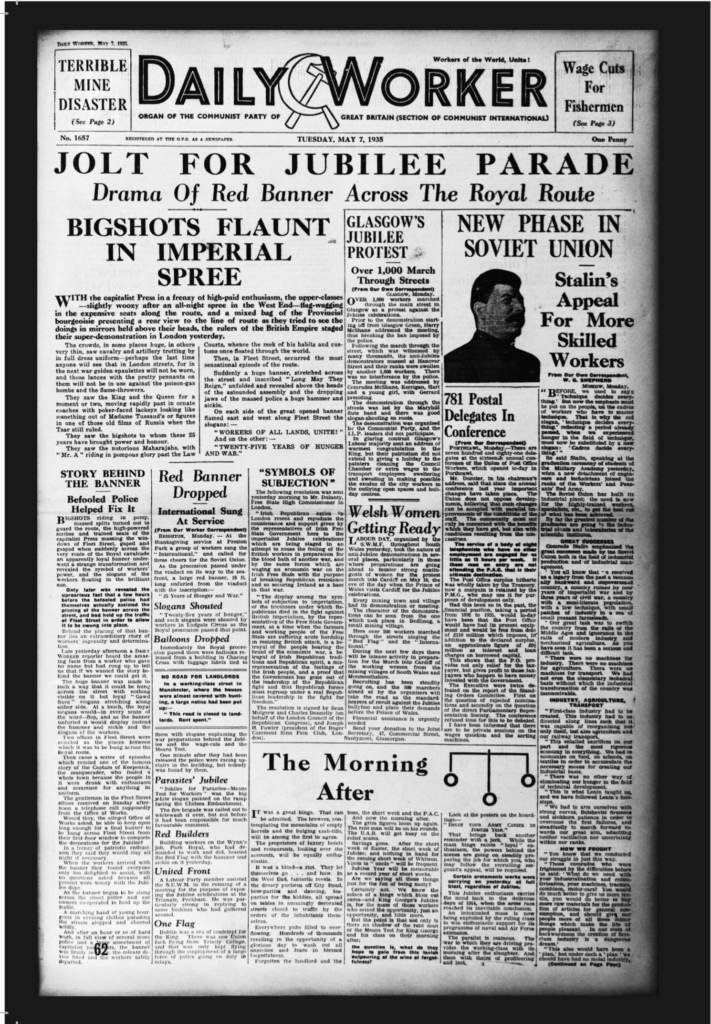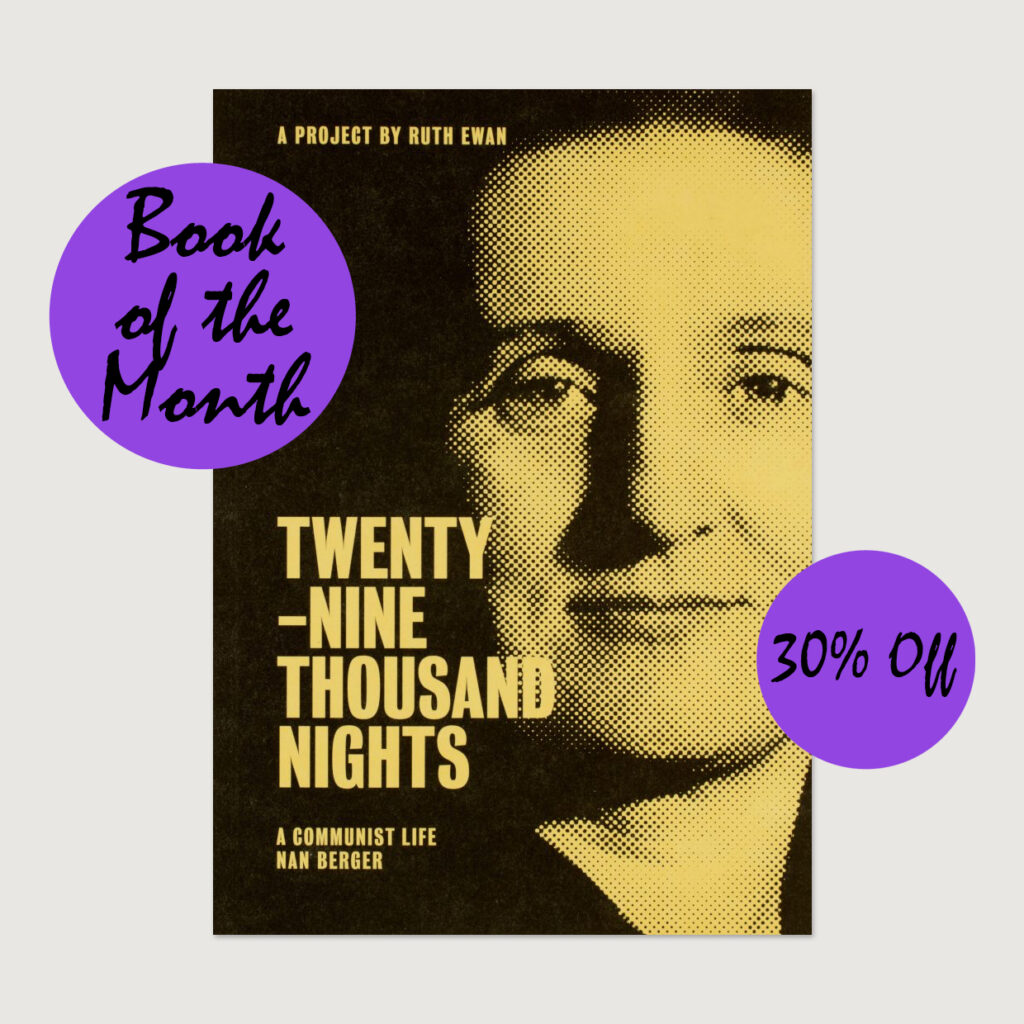“Bigshots Flaunt in Imperial Spree” – notes on a previous Jubilee
This is an extract from Twenty-Nine Thousand Nights: A Communist Life By Nan Berger, by Ruth Ewan. It recounts Nan Berger’s experience selling copies of the Daily Worker on the Silver Jubilee of George V, and a banner drop along the procession. The authorised banner read “LONG MAY THEY REIGN”, but it was altered it so that when unfolded it read: WORKERS OF ALL LANDS UNITE on one side, and 25 YEARS OF HUNGER AND WAR on the other, with a hammer and sickle in the centre.
“At this time the dues paying membership of the Communist Party was about 7,700 but the sales of the Daily Worker were 30,000 daily, rising to 70,000 at the weekend. Selling to people at tube stations, factory gates, outside cinemas was, I discovered later, the number one job for party members and party supporters. My first sales pitch was in Central London on Jubilee day, 6 May 1935, the twenty-fifth anniversary of the reign of George V. The place was near Leicester Square and there were four of us, one on each corner of an intersection. I call it a sales pitch but such was the interest that all we had to do was hand out the paper and take the money. When there was a pause in business we shouted pre- arranged slogans such as ‘Jubilee celebrations are war preparations!’ and ‘end 15 years of hunger and war!’ In less than one hour we sold 50 copies each and had to return to base to collect further supplies which we did not get because other sellers had also sold out.
At this stage I had not met my future husband Roland, whose activities in the party and outside it had earned him the nickname ‘Lucky’ – which was perhaps why he was chosen for one of the risky jobs on Jubilee day. While I was selling on the street corner he was already watching in the Strand to see if the banner which read ‘Long May they Reign’ would change into ‘25 years of Hunger and War’ as the Royal Coach containing King George and Queen Mary passed under it. It did and there was quite a cheer for the effort.
Whilst Lucky was one of the ‘behind the scenes’ people on the job the real hero was a short unemployed painter called Mac who donned a white coat and carried a tool bag. Passing himself off as a workman – ‘Mr Grainger of the Ministry of Works’ – Mac gained access to the offices where the ropes for the banner were situated and with the help of another comrade in an office the other side of the road ‘doctored’ the banner to bring about the transformation.
The demonstration at the Jubilee Celebrations was part of the Party’s campaign against the private manufacture and sales of armaments which culminated in the Royal Commission on the Private Manufacture of and Trading in Arms. Harry Pollit, General Secretary of the Communist Party, gave evidence both in writing and verbally to the Commission. His evidence alleged that the United Kingdom was the main centre of the world’s armament trade and was responsible for about one-third of all arms exports. It also pointed out that in the 1914–18 war some 800,000 British troops were killed and two million were wounded, some by British arms, notably in the Dardanelles.”

